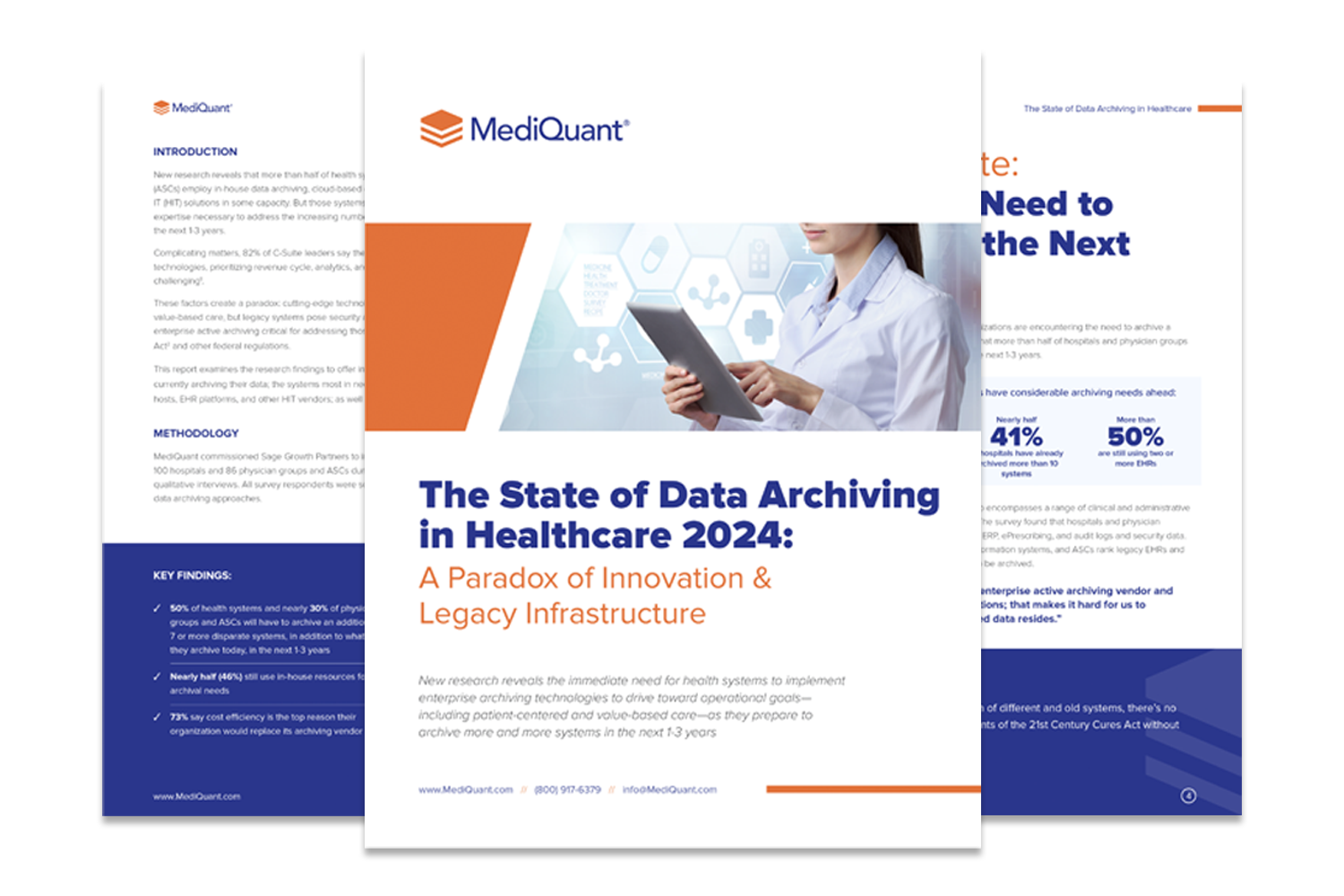by Mediquant | Feb 14, 2022
Efficient healthcare data extraction plays a vital role in hospital data management. Providers must be equipped and prepared to pull out, use, and send out accurate data from their EHRs to boost the quality of patient care. Extracted data plays a vital role in scientific research (especially during a pandemic). It also provides raw data for analytics and decision support. In this article, we will be discussing some of the methods providers can use to improve data extraction and achieve their patient care objectives.
1. Use APIs
An application programming interface (API) is a set of rules that define how applications or devices communicate with each other. An API is an intermediary between an EHR and the application or information system that needs EHR data.
In the healthcare industry today, the FHIR API is one of the most widely used for exchanging data between information systems. Vendors also build custom APIs to integrate their EHRs with other systems like LIS and practice management apps.
Some of the benefits of deploying APIs for data extraction include:
- Improved patient access: Patients can access information through a web browser or smartphone app. They can monitor their health condition, view lab test results, and participate actively for improved care results.
- Efficient exchange of information between providers: When cases are referred to specialists, the specialists can view the entire medical history. This reduces the need for duplicate tests, speeds up diagnosis, and allows the patient to receive faster treatment.
- Improved clinical decision support: Data from the EHR can be fed into apps that recommend prescriptions, give adverse drug interaction alerts, and enable physicians to make more accurate diagnoses.
2. Integrate EHR With Other Information Systems
EHRs capture, store, retrieve, and analyze patient medical information. Today, over 75 percent of office-based physicians interact with their EHR throughout the day.
Within these EHRs reside vast volumes of data that can enhance clinicians’ productivity, boost care quality, and improve providers’ bottom line. But without interfaces that link the EHR to systems like practice management, laboratories, radiology departments, appointment scheduling, decision support, CRM, and other applications, it is difficult to harness the full benefit of EHR data.
3. Automate EHR Data Extraction
The demand for reliable health information increased significantly during the COVID-19 pandemic. Unfortunately, many hospitals could not provide comprehensive data to public health agencies, which affected how the pandemic was reported and treated.
To ensure an unhindered flow of information between providers and public health agencies, developing secure automated apps that can extract information efficiently is essential. Such a solution should have the capacity to provide secure transmission of a patient’s medical information on-demand.
Health care extraction plays a vital role in exchanging and transmitting patient medical information, and it is also an essential task in migrating EHR data from one system to another. To ensure that data can be extracted, transmitted, or exchanged efficiently, your organization must partner with a healthcare data management expert.
Connect to a Healthcare Data Extraction Expert Today
Call MediQuant at 844.286.8683 to discuss your data management, extraction, migration, or archiving needs. Visit our contact page now to schedule a free consultation session or see a demo of our data management solutions.


